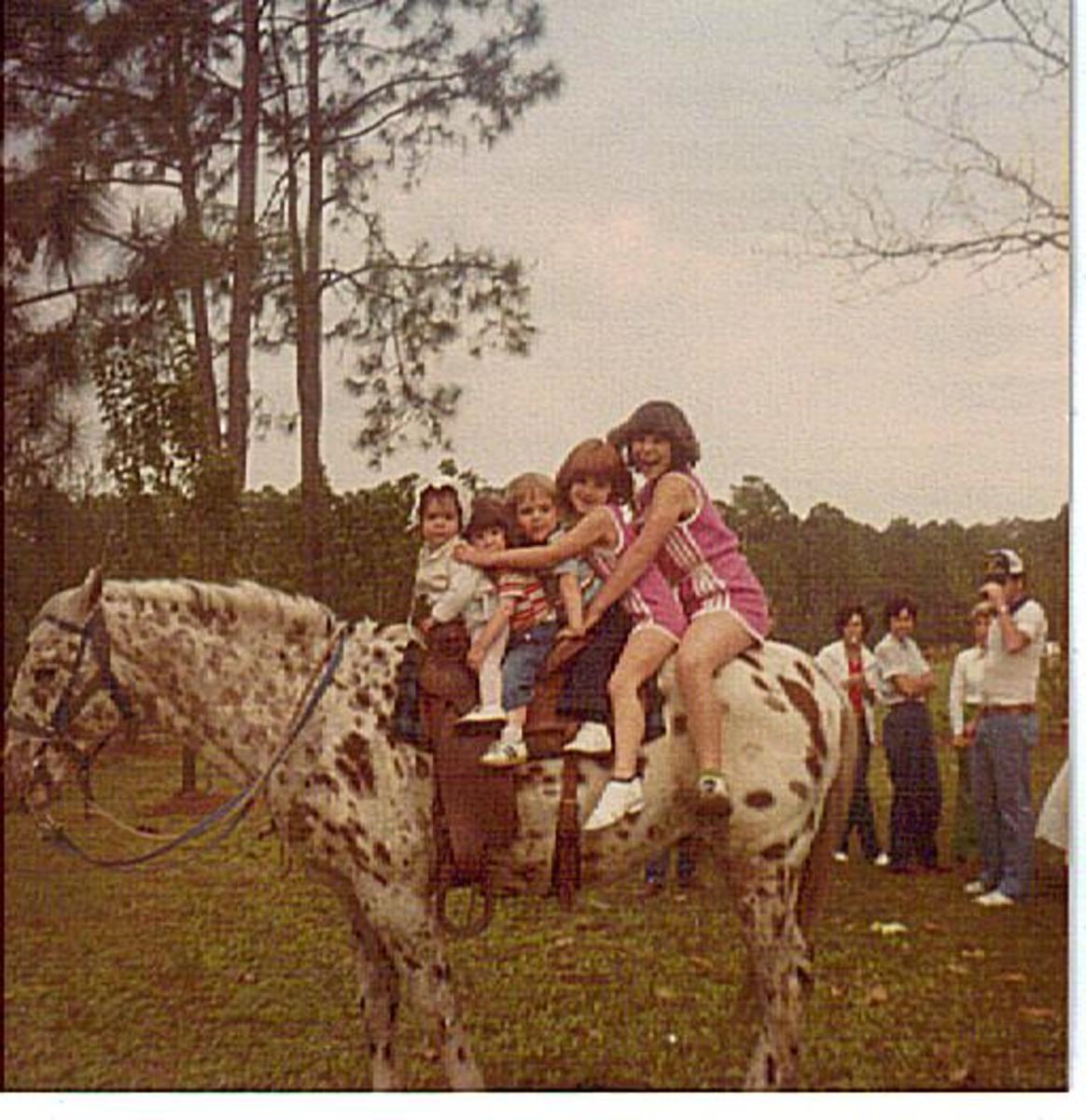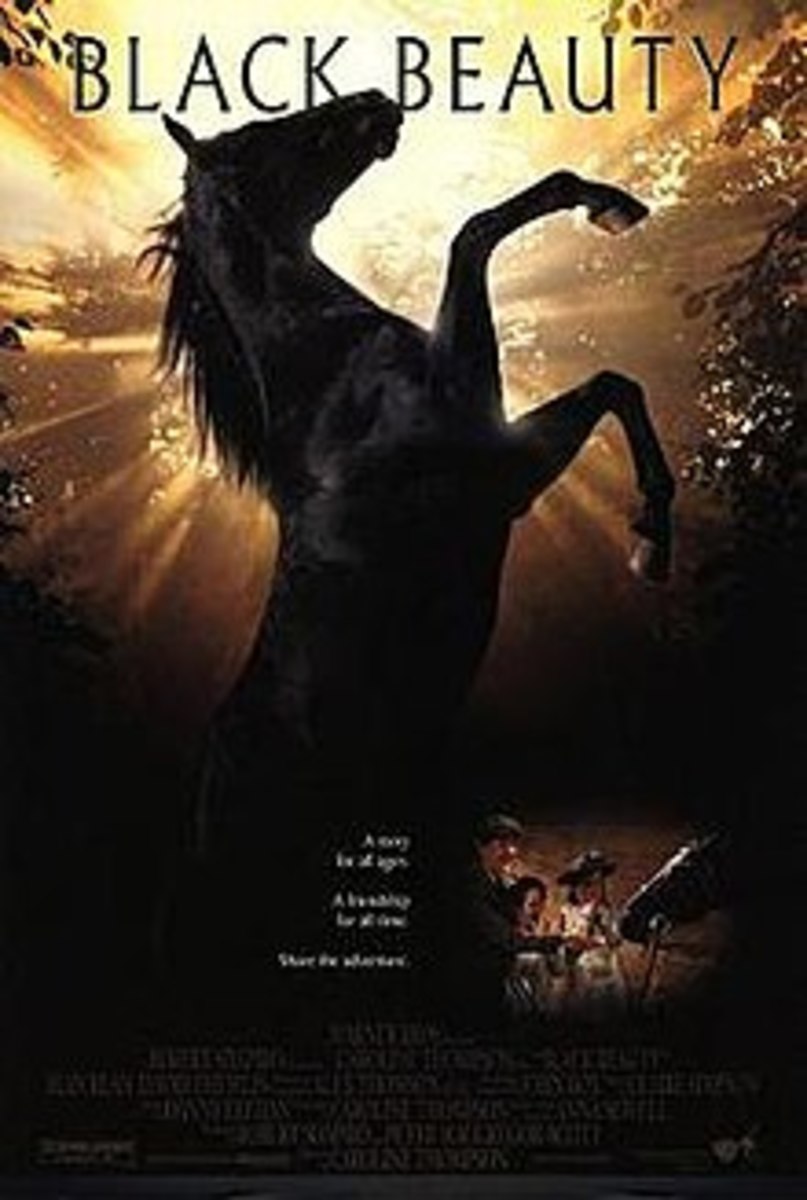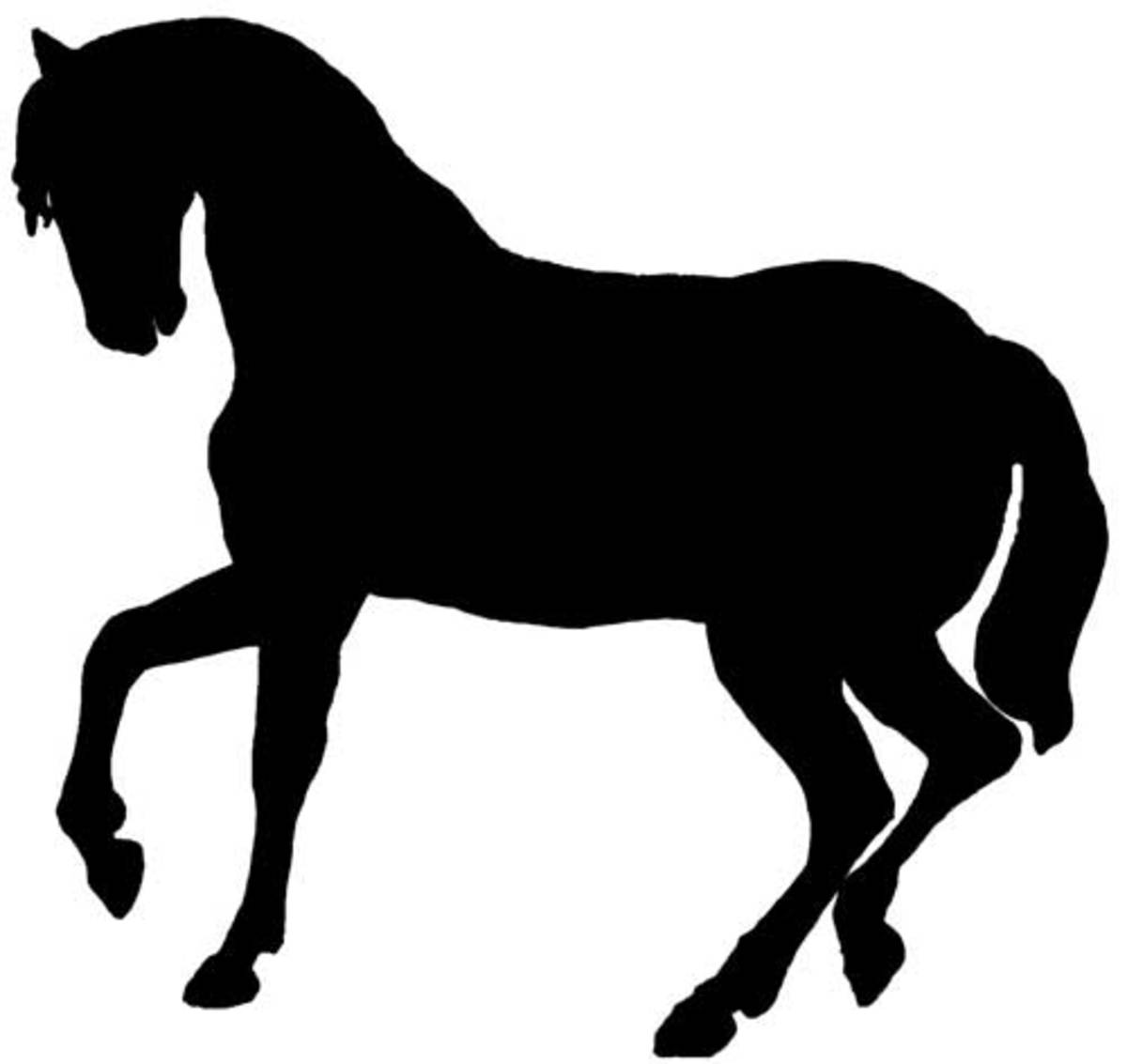Tips For Buying Your First Horse
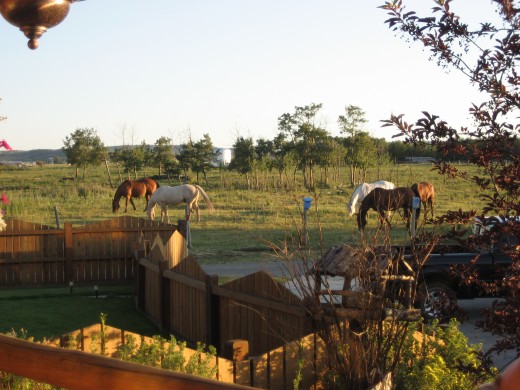
So, You Want A Horse?
You've been taking lessons for a while, you've budgeted and know you have the money. You've worked out where you're going to keep it.
Now, it's time to find the horse of your dreams. Or at least one you like and enjoy riding and working with. But where do you start? Maybe you could approach the barn you ride at about buying your favorite lesson horse? Or, perhaps, you would feel good about yourself if you adopted a rescue?
There are several ways to buy a horse. Some of them are better than others for beginners. There are also other things you should consider.
Working Out Your Needs
What do you want to do with this horse? Do you want to mosey around on the trails? Go to schooling shows? Or are you looking to compete seriously in your favorite discipline?
All of these affect the breed, type, age and training level you need. You might also prefer mares to geldings or have your heart set on a specific color. (Note that unless you are showing breeds known for a specific color, color should be your least and last consideration. A good horse is never a bad color. But if all else is equal and you really want a black and white pinto...)
Size is an important consideration. Ask your trainer how big the horses you normally ride are so you can determine what size of horse you are most comfortable on. Discipline may affect that - for example, it is fashionable in dressage currently to ride a larger horse, whilst cutting and roping horses tend to be short and stocky. Bear in mind that many people advertise horses as taller than they actually are. If the horse is too big, you will have more problems riding and controlling it. If it is too small, it will develop health problems from carrying your weight.
Find A Vet
Before you even consider buying a horse, you should already have found a quality, reputable vet. Now it's time to talk to that vet about your plans.
Any horse you buy should be given a physical by a vet that works for you, not the seller. The vet needs to know what you plan on using the horse for. For example, a mild hock problem that precludes a horse from jumping is not going to be a problem if all you ever do is dressage. Soundness exams are conducted with the planned use in mind.
Start Your Search
With your criteria in mind and a vet at hand, now it's time to talk to your trainer. I strongly recommend that first time buyers are accompanied by an instructor or trainer who knows them when horse shopping. Most trainers will gladly do this. (Although be warned. Some trainers will encourage a rider to buy a horse that's too much for them so they will buy more lessons. Yes, this happens, so be careful).
There are several different places you can look for a horse, which I will now go through in more detail.
Your Trainer's Barn
I generally don't recommend buying a horse from your trainer. If you do, please get a neutral party to assess whether the pairing is suitable.
It's easy to fall into the trap of absolutely trusting your trainer and end up with the wrong horse. Also, horses that are fine as lesson horses can change personality totally when they get into private hands. Of course, the reverse is also true.
Sometimes, buying your favorite school horse can work out really well, though. Get a trainer from a different barn to assess you, and seriously consider what you know about the horse and its quirks and any health problems it might have.
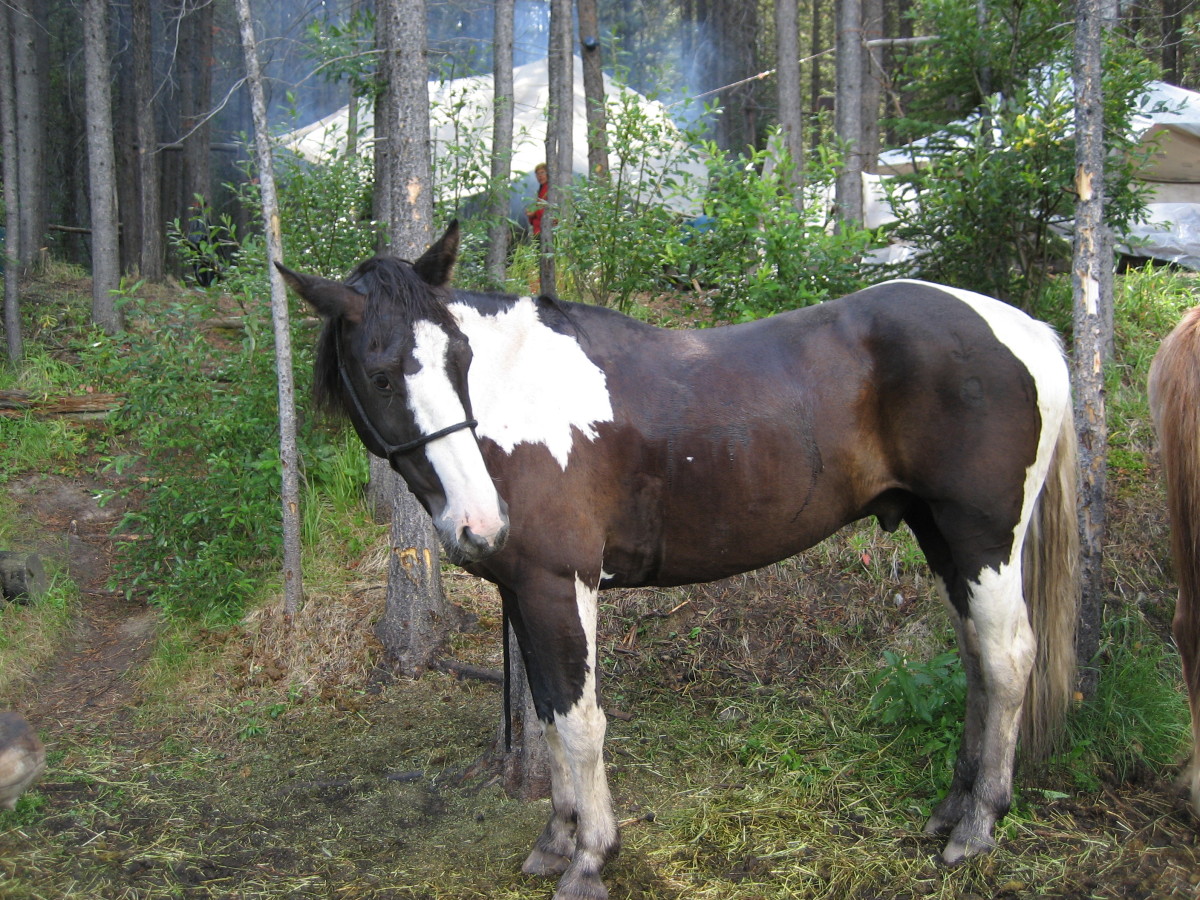
The Local Auction
I do not recommend that novice riders purchase at auctions.
Horse auctions fall into two categories. First, there are expensive, high-end breed auctions, at which animals tend to be of very high quality. In some cases, with the advice of a trainer, you can find a good schoolmaster at one of these if you are planning on showing seriously. Occasionally, you can find a good deal on a gelding at a breed auction.
The majority of horse auctions, though, fall into the second category - the livestock auction. These auctions, sadly, are often a dumping ground for unsound and dangerous horses. It is possible to find a true gem at an auction, but this is a game best left to professionals who can handle whatever they might find and take the loss if they end up buying a horse that is so dangerous or screwed up it ends up having to be euthanized.
To illustrate why these auctions are bad:
A horseman of over twenty years of experience went to a local auction and purchased a Quarter Horse mare for his lesson string. She trotted sound, but was a plain and rather unattractive animal with an ugly head and somewhat mediocre conformation. Thus, she was cheap.
She was also quiet. Very quiet. So quiet that he just took her home, threw a saddle on her and started teaching kids to ride on her. She barely went forward. She was, in fact, so lazy - and getting more lazy - that in the end he called the vet.
The vet did a thorough examination and then announced 'No wonder she's so quiet - she's nine months pregnant'. Oops! The horseman had foaled out mares before, so he wasn't too worried. He contacted the auction house and they put him in touch with the seller so he could find out who the stud was in the hope of being able to register the baby.
They told him, and then asked 'So, who broke the mare?'
She was so quiet nobody had noticed she was completely untrained... It ended well, and the mare is still there, well into her twenties, packing kids around, but think about whether you could deal with this situation. Could you handle finding out the mare you bought is pregnant? Could you manage an untrained horse? What if the horse turns out to have bad habits such as biting, kicking, bucking or taking off with people?
Auctions should be left to the experienced.
Private Sales
You can generally find horses for sale on any number of equine classified sites on the internet. Some areas also have a horse paper or a farming paper that may include sales ads.
Private sales are not as risky as auctions, but need to be approached with some caution. Here are some things to bear in mind:
1. Almost everyone, including some trainers I know, guesses the height of a horse too high. (I've heard an experienced instructor swear up and down a medium pony was 15 hands). Unless they say they sticked it, assume the horse is a hand or so shorter than they say.
2. Watch out for euphemisms in sales ads. If it says 'needs an experienced rider', don't touch it. No matter how experienced you think you are, you want to step down a difficulty level or two when buying a horse. If a horse is described as 'forward going' it probably won't stop, and if it's called 'laid back' that may well mean it takes a lot of work to make it move.
3. Look at why the person is selling the horse. For example, as a first time owner, if somebody says they're selling the horse because it's too easy for them, then that's probably a good thing. Going to college, having a baby or, in the case of ponies, physically outgrowing the animal are all good reasons. If the seller seems evasive or refuses to tell you why they want to part with the animal, then you probably want to move on.
4. Never look a gift horse in the mouth. You've heard this saying. It comes from the fact that it's possible for an experienced person to identify a horse's age by its teeth - and maybe the gift horse is older than they're saying. A free horse may be perfect for you, or it may have something wrong with it.
5. Take your trainer with you to look at each horse. Always get the owner to get on the horse before you do. If they won't, walk away. If they have a good reason why they can't such as disability, pregnancy, etc, then get your trainer to ride it first.
6. Resist the temptation to buy a horse because it is thin, wormy, or clearly being abused. Instead, contact a local rescue. Rehabilitating a horse is not easy and best left to people who know what they are doing. If the situation is really bad, get out of there and call animal control.
7. If the horse is tacked up waiting for you to ride, make the owner untack it. You want to see how it acts when groomed, tacked up, etc. Some sellers will try to do that behind your back so that you don't find out that the animal bites every time you fasten the girth. Brush the horse, pick its hooves out, lead it. Ground manners are often sadly neglected in this world, and they are very important.
8. Finally, always get a bill of sale. Ideally, get one that specifies that the horse was not drugged for sale - yes, this does happen. Not as often as you might think, but it does.
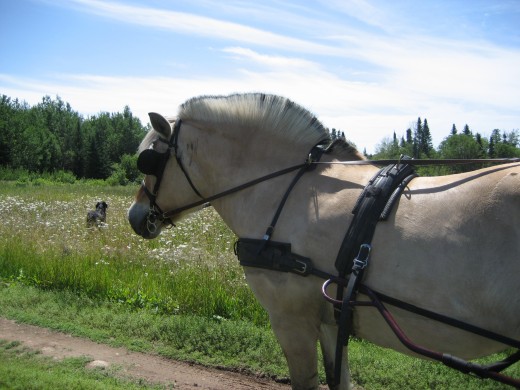
Rescues
Adopting a horse from a rescue can be highly satisfying. First time horse owners should not try to handle rehabilitation themselves, but taking on a horse that has been fixed up by a rescue can work well.
Always check the rescue's reputation. Avoid rescues that pull horses straight out of the kill lot and sell them on right away. This is pretty much the same as buying at an auction, except you'll probably pay more for the horse. The kind of rescue you want is the kind that fixes the horse's problems, puts thirty or sixty days training on them, and vets potential adopters thoroughly. Ask your trainer about local rescues. She likely knows which ones are good, and which ones are dodgy or even scams.
Expect to be asked questions. Rescues may ask questions such as 'What is founder?' or 'How much hay does the average horse at in a month?' They may want to see where you are going to keep the horse. They will also likely grill you on your riding experience and exactly what you plan on doing with the horse. Many rescues do not sign over actual ownership of the horse and expect it to be returned if you can't keep it any more. Be warned that some rescues will not hand over the horse's papers, even if they have them, meaning the horse cannot be shown in breed shows.
Be honest about your riding experience and what you want to do - this will allow them to work out whether they have a suitable animal or which horses to show you. If you are going to a larger rescue, you may well be able to look at and try out several horses in a trip. Again, take your trainer with you so you have a second pair of eyes looking over the horse. Narrow down to one or two, then come back and give them a more thorough try out on another day.
Rescue horses can and often do have 'baggage'. Be aware of what issues a horse has and make sure they are ones you can work or deal with.
Horse Traders
Most people have an image of a horse trader or horse dealer that overlaps somewhat with a shady used car salesman.
This is not true. Although there are certainly shady dealers and scammers out there, horse traders need to maintain a reputation to stay in business. In fact, a good horse trader is often the very best place to find your first horse.
You find the good ones by word of mouth. One of the first places to go is the lesson barn. Where do they get their horses? They may well know of a good trader you could talk to.
A good trader is a matchmaker. She will quiz you intently about your needs, desires and experience and then look for just the right horse. If she doesn't have it, she might well be willing to keep her eyes open. She will let you try several horses and be honest about their quirks and suitability. (Needless to say, you should still take your trainer).
A dealer is also more likely than a private seller to let you take a horse home for a couple of weeks and many will also take the horse back if the partnership is simply not working out.
Horse brokers operate in a similar manner, but they do not own the horses they sell...they place them on behalf of private sellers. Brokers tend to deal in higher end, more expensive horses, as they are paid on commission.
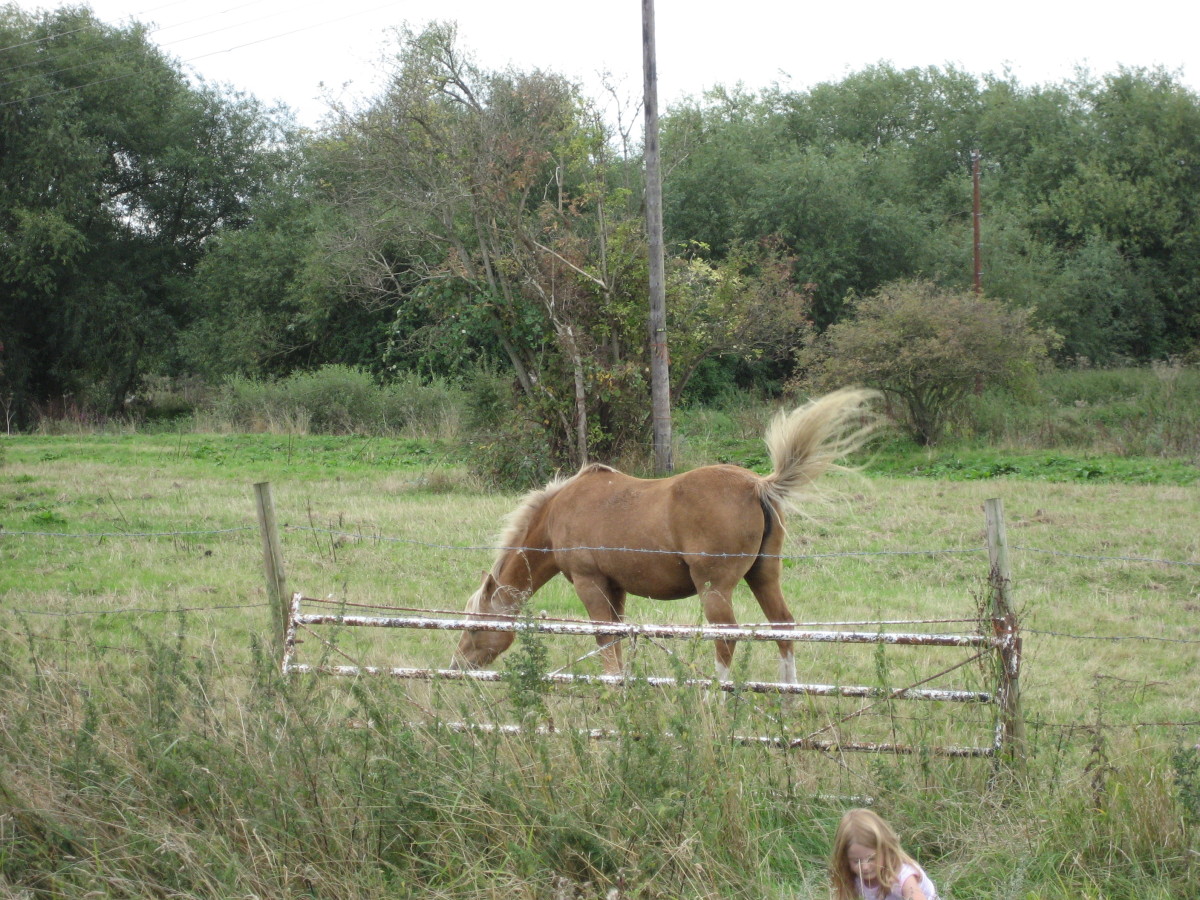
Breeders
It is highly unlikely that you will end up buying a horse from a breeder - horses are not dogs. First time owners should not buy foals or yearlings. Raising a horse takes a lot of time, money and effort, and it really is best to let somebody else do it until you have some experience in horse ownership and really feel up to the challenge.
Breeders do sometimes have trained horses for sale, and if you want an older, quiet horse, sometimes you can get a good deal on a trained mare who is being retired from breeding, either for medical reasons or because the breeder is unhappy with the quality of her foals. In these cases, the breeder should be approached much the same as a private seller.
Summary
1. Always take a trainer or experienced friend with you to look at any horse.
2. Always get the horse examined by an equine vet who works for you and is aware of your needs.
3. Step down the difficulty level from horses you may be riding in lessons - bear in mind you will want to ride this horse unsupervised.
4. Do not buy at auctions.
5. The best place to look for a horse is a horse dealer or a reputable rescue.
6. Do not be tempted to try and rescue or rehabilitate a horse yourself.
7. A good horse is never a bad color.

